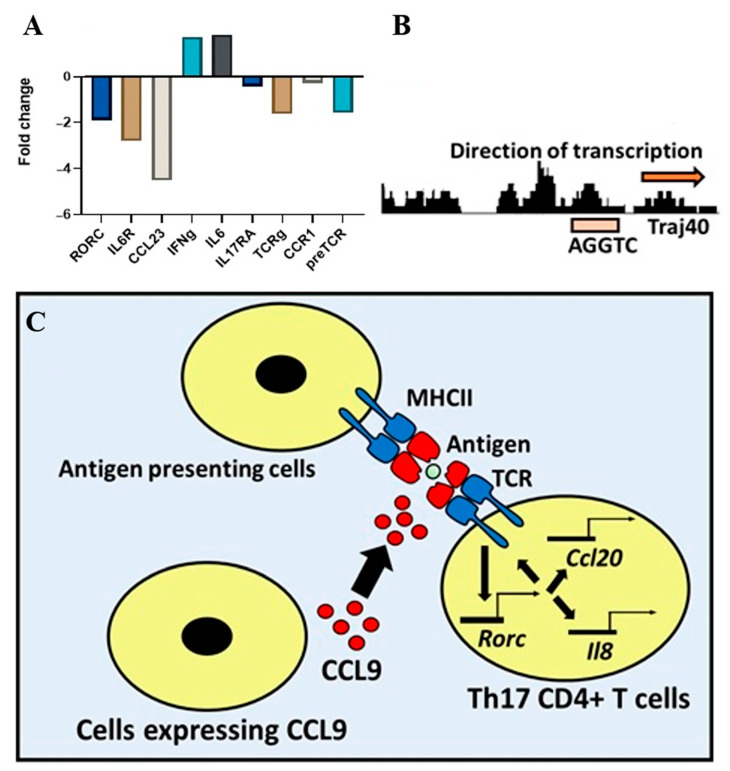Figure 8.
Microarray-based analysis suggests the involvement of CCL9 in CD4+ Th17 cells recruitment/activation in colon cancer. (A) Human microarray (GSE136735 on GEO repository) analysis of colorectal tissue versus normal tissues indicated downregulation of RORγt, CCL23, IL17RA, and TCRG (TARP) gene values in colorectal cancer samples, as shown in the bar plot. Interestingly, CCR1 (i.e., CCL23 receptor in humans) expression was not significantly altered in colon cancer tissue as compared to normal tissue, suggesting that the CCL9 effect on cancer growth might not be CCR1-mediated; (B) our analysis of ChIP seq-data published in Ciofani et al. identified RORγt response element motif AGGTCA in the promoter of Traj40 in Th17 cells [20]. This observation indicates that there might be an auto-regulation loop between RORγt and the genes controlling TCR receptor function/diversification. (C) The data hints at a possible role for CCL9 in the activation/recruitment of pro-inflammatory Th17 cells, known to be beneficial in slowing tumor growth. A seemingly feasible hypothesis of CCL9 function could be that it plays a role in increasing TCR activation in RORγt+ T cells (i.e., Th17 cells) through a Gq-mediated pathway. In turn, Th17 cells could promote CD8 and neutrophil recruitment, thereby decreasing tumor growth. However, our data do not exclude a positive effect of CCL9 on other RORγt+ T cells, such as RORγt+ CD8 (also known as TC17).

